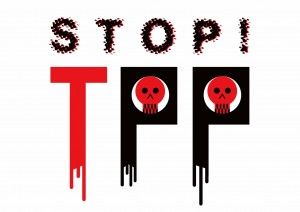The business community is worried that they no longer have any influence over the Republican Party and place the blame for this current crisis squarely on the Tea Party faction of the House.
As the government shutdown grinds toward a potential debt default, some of the country’s most influential business executives have come to a conclusion all but unthinkable a few years ago: Their voices are carrying little weight with the House majority that their millions of dollars in campaign contributions helped build and sustain.
Their frustration has grown so intense in recent days that several trade association officials warned in interviews on Wednesday that they were considering helping wage primary campaigns against Republican lawmakers who had worked to engineer the political standoff in Washington.
Such an effort would thrust Washington’s traditionally cautious and pragmatic business lobby into open warfare with the Tea Party faction, which has grown in influence since the 2010 election and won a series of skirmishes with the Republican establishment in the last two years. [..]
In the two previous battles over the debt limit, many chief executives were reluctant to take sides, banding together in groups like Fix the Debt, which spent millions of dollars on a campaign urging Democrats and Republicans to work toward a “grand bargain” on the budget. But with shutdown a reality, and the clock ticking toward default, some of those same executives now place the blame squarely on conservative Republicans in the House.
The handful of Tea Party extremists, who believe that it’s OK to crash the world’s economy for their ideology, are out of control and unreasonable, not that they ever weren’t. But now the creators of this American version of Al Qaeda are scared. Yeah, they are scared. When you have the Koch brothers writing letters (pdf) to the US Senate insisting that the company was not involved in any ploy to shut down the government in efforts to defund Obamacare and Heritage Action, an arm of the Koch bothers’ Heritage Foundation, telling the House to raise the debt ceiling, you know they’re rattled.
Michael Needham, CEO of the powerful group Heritage Action, said that he opposed conditioning a crucial vote to increase the government’s borrowing authority on the group’s main goal: defunding Obamacare.
Under questioning at a breakfast with reporters, hosted by the Christian Science Monitor, Needham, a product of the Stanford Business School, conceded that failure to raise the debt ceiling would indeed disrupt the global economy. [..]
That could give Obama and House Speaker John Boehner (R-Ohio) at least a smidgen of room to maneuver if and when they decide to strike an overall deal: the White House could get a “clean” debt ceiling vote (though of short duration) and the GOP could get a concession or two on the continuing resolution to fund the government’s annual spending.
Taking the cue, the reluctant leader of the pack, House Speaker John Boehner (R-OH, House Majority Leader Eric Cantor (R-VA))and other members of the GOP leadership are meeting this afternoon at the White House to discuss a short term solution to raise the debt ceiling but not ending the government shutdown
Republican House leaders Thursday offered the president and Senate far less than they want in the ongoing financial standoff, presenting a six-week hike of the debt limit, but no deal to reopen the shuttered federal government.While the plan would grant six more weeks before the nation faces the chance of a default, it is contingent on the president agreeing to give up one of his key stances — that he will not sit down and negotiate until the government is reopened and the House stops using the $16.7 trillion debt limit as a lever to extract concessions. The limit is expected to be reached Oct. 17.
Nope, says the White House:
“The President has made clear that he will not pay a ransom for Congress doing its job and paying our bills,” an administration official said in a statement.
“It is better for economic certainty for Congress to take the threat of default off the table for as long as possible, which is why we support the Senate Democrats’ efforts to raise the debt limit for a year with no extraneous political strings attached,” the official continued, adding that Obama still want a straight up-or-down vote on a measure that the Senate passed to reopen government.
“Once Republicans in Congress act to remove the threat of default and end this harmful government shutdown, the President will be willing to negotiate on a broader budget agreement to create jobs, grow the economy, and put our fiscal house in order,” the official said. “While we are willing to look at any proposal Congress puts forward to end these manufactured crises, we will not allow a faction of the Republicans in the House to hold the economy hostage to its extraneous and extreme political demands. Congress needs to pass a clean debt limit increase and a funding bill to reopen the government.”
This doesn’t sound very promising. Boehner’s problem is that unless he violates the Hastert Rule and goes the House Minority Leader Nancy Pelosi (D-CA) and the Democrats for help, there is no way he can get a clean debt ceiling bill to the House floor. Boehner is betting the faith and credit of the US on Obama agreeing to his terms. The president is betting that Boehner will be forced to cave, abandon the Hastert Rule, and put a clean debt ceiling bill up for a vote.
Reid and Obama are also unsure whether Boehner can actually push his proposal through the House in the first place. They aren’t convinced hard-line conservatives and tea party aligned House Republicans won’t balk, forcing Boehner to turn to House Democrats for support. But any Democratic support would be tied to reopening the government.
Here’s the House GOP plan, and the thinking behind it: Republicans would vote to lift the debt ceiling until Nov. 22 – just before the Thanksgiving recess – while prohibiting the Treasury Department from using extraordinary measures to lift the borrowing limit. The legislation will also set up a negotiation over the borrowing cap and government funding. At this time, there are no spending cuts attached to the legislation. There is also no vote scheduled.
The game of chicken continues leaving not just the average American at great risk but putting the business community at loggerheads on who to fund to represent them in the long run. This game will have consequences. Question is for whom? And how dire?

 Over at Wonkblog
Over at Wonkblog  The government shutdown and the threat of default on debt payments kept President Barack Obama from attending the recent round of talks on the
The government shutdown and the threat of default on debt payments kept President Barack Obama from attending the recent round of talks on the 





Recent Comments